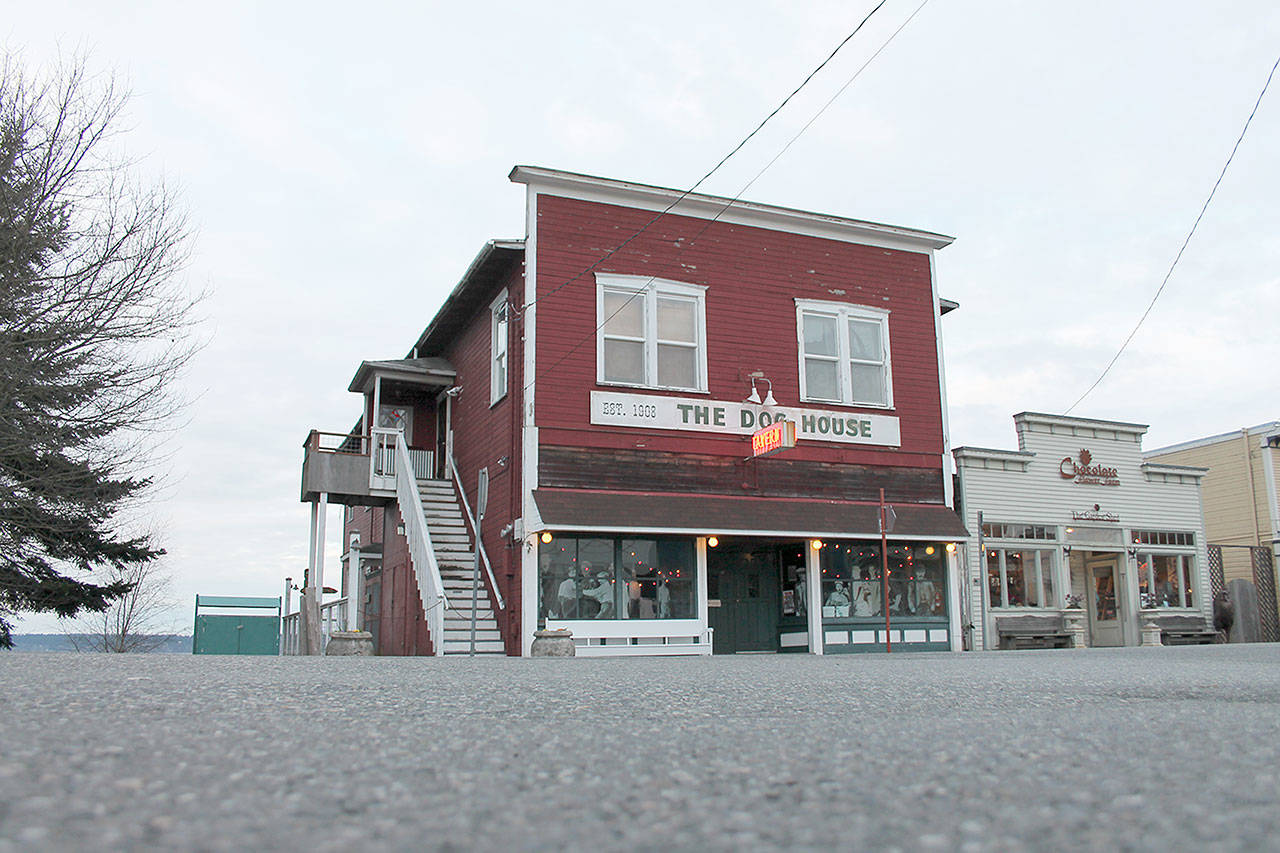The owners of the Dog House in Langley will likely be issued their long-awaited building permit this week, according to city Planning Director Brigid Reynolds.
The permit, which will give owners Charlie and Janice Kleiner of Issaquah the OK to begin repairs on the 100-year-old building, outlines interior, exterior, foundation and roof work. No major changes to the look of the structure are planned.
“There’s a lot of work to be done, given the age of the building and how long it’s been sitting without any work done,” Reynolds said. “…Everybody in the city is looking forward to them moving forward. Everybody is pretty positive about it all.”
The city is requiring a $60,000 site improvement surety. Mayor Tim Callison cited Chapter 18.44 of the Langley Municipal Code when he explained that the surety is discretionary and can be applied to large projects. The renovations are estimated at $1.2 million.
The mayor also said that the building is old and its condition is uncertain. The cost of the surety was determined to be the price of restoring the building to “acceptable visible condition” should the Kleiners drop out of the project.
“All of those things contributed the need to ask for a surety,” Callison said.
“A maintenance bond is typically required when there needs to be assurance that the work will be completed. Of course they get it back at the end,” Reynolds said.
Callison also said sureties have been required in the past, such as when the city asked the developers of the Langley Passage housing project for a $250,000 bond in 2010.
The Kleiners and city have navigated through a series of hoops and hurdles over the past few years, from a land swap agreement to architectural and engineering reviews. With those complete, all that is needed now is the building permit, Reynolds said.
Charlie Kleiner said the restoration will make the building functional again, while also staying true to the wishes of the city, community and various planning boards. They plan to either bring it back to its prior use as a restaurant and tavern or “lease it out.”
“Our goal is to make it usable,” Kleiner said. “Today, it’s not really usable.”
Charlie Kleiner said an “incredible amount of damage” to the building came mainly from neglect, but also because of the way it was built. According to the Kleiner’s application, “Phase 1” of the project will consist of a sequence of work to fix the damage and also address structural shortcomings. The list includes the repair of the floor joists, new door openings, floor leveling and wall shearing and reshaping of the kitchen and sub-basement floors.
Charlie Kleiner has his fingers crossed that once repairs commence, other issues won’t pop up.
“When you deal with a building like this, there’s a lot of unknowns,” Charlie Kleiner said. “Generally, they’re not good unknowns.”
He predicts the cost of the repairs may trump the building’s net worth. Charlie Kleiner said that if additional defects begin to pile up, the couple would consider letting someone else run the restaurant and tavern.
He hopes that isn’t the case though, and also hopes that they can get the building up and running again because of its value to the community.
“It’s not like we look at it from strictly a business point of view,” Charlie Kleiner said. “Because if we did, we’d have sold it. We could have peeled off it time after time. We choose to stick with it and throw our money away.”
A previous version of this story contained inaccurate information about the past use of sureties and inaccurately attributed the information to City Planner Brigid Reynolds. The city has required sureties in the past.



